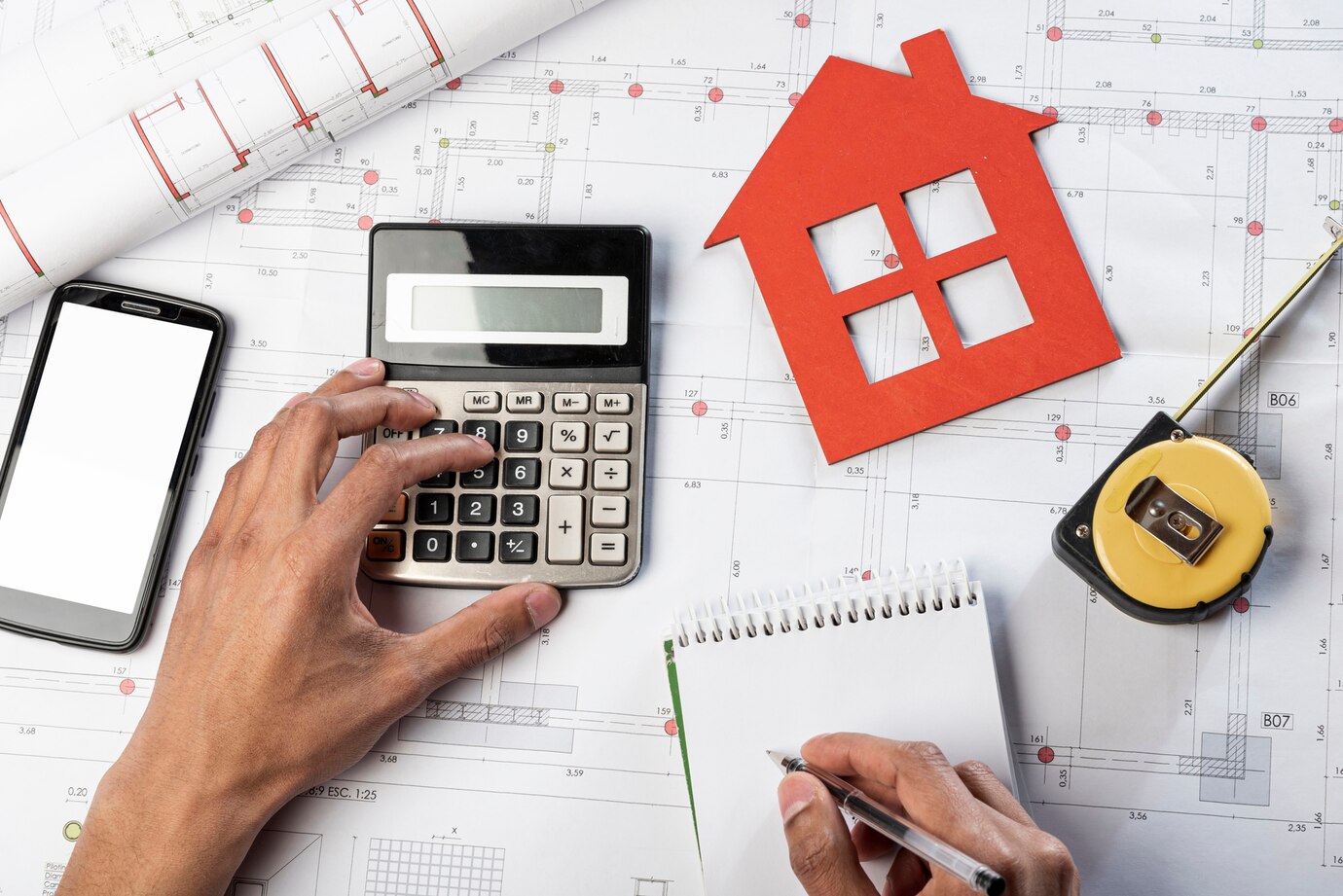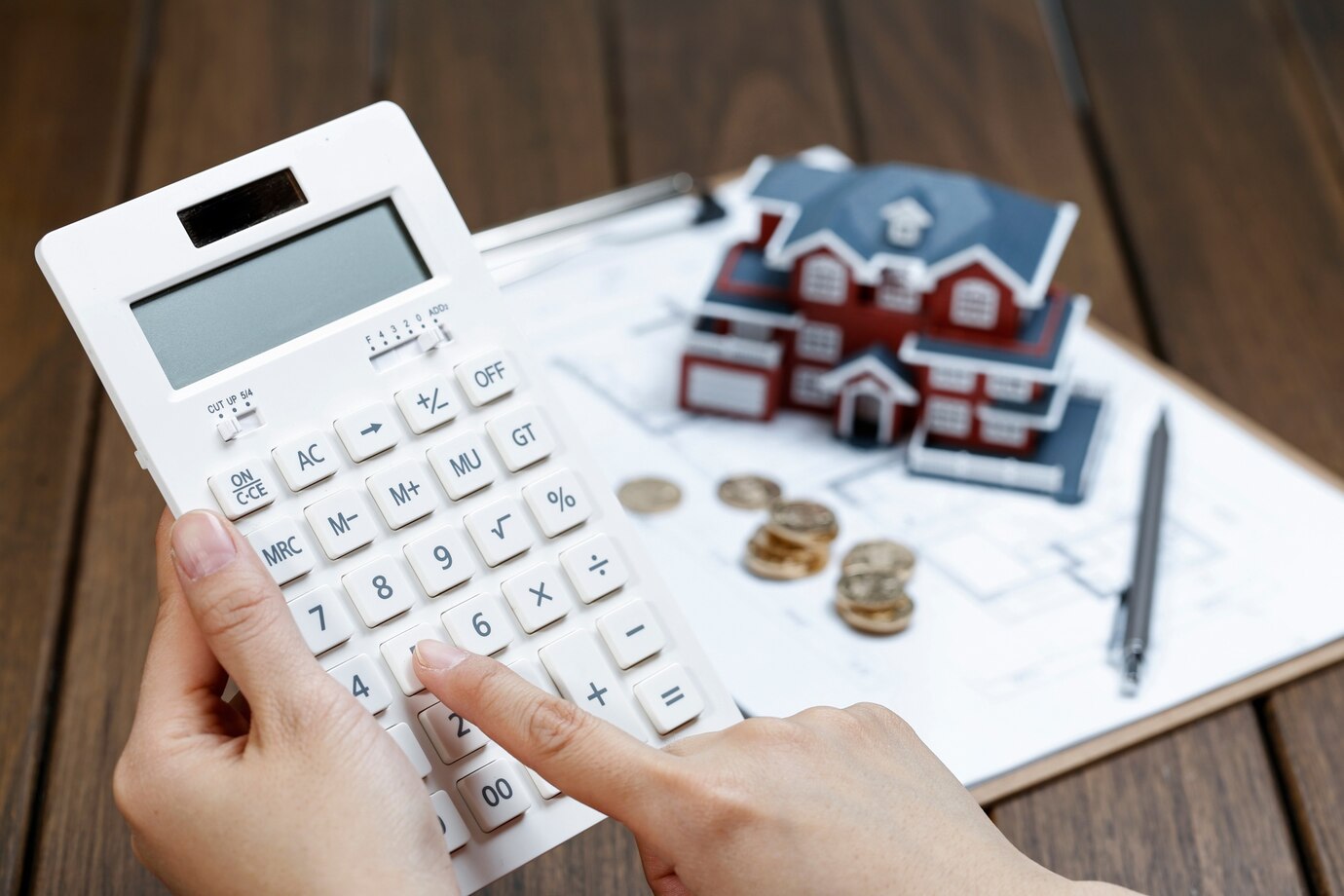
A mortgage affordability calculator is an essential tool for Winnipeg homebuyers to determine how much house they can afford based on their income, debts, and other financial factors. This calculator helps you estimate the maximum mortgage amount you may qualify for, giving you a clear picture of your home buying power in the Manitoba capital.
Key takeaways
- A mortgage affordability calculator considers your income, debts, and down payment to estimate your maximum home purchase price
- Winnipeg’s housing market offers relatively affordable options compared to other major Canadian cities
- The stress test requirement affects mortgage affordability for many Winnipeg buyers
- Down payment size significantly impacts your mortgage affordability and overall costs
- Property taxes in Winnipeg can affect your total housing costs and should be factored into affordability calculations
- Manitoba Housing programs may help some buyers increase their affordability in Winnipeg
Understanding mortgage affordability in Winnipeg’s housing market
Winnipeg’s real estate landscape offers a unique blend of affordability and opportunity for homebuyers. With a median home price significantly lower than in cities like Toronto or Vancouver, many Winnipeggers find themselves in a position to enter the housing market. However, understanding how much house you can truly afford is crucial to making a sound financial decision.
Mortgage affordability isn’t just about the purchase price of a home. It’s a complex calculation that takes into account your income, existing debts, credit score, and the specifics of the Winnipeg housing market. Let’s break down these factors to give you a clearer picture of how mortgage affordability works in the Gateway to the West.
The role of income in mortgage affordability

Your income plays a primary role in determining how much mortgage you can afford in Winnipeg. Lenders typically use two key ratios to assess your ability to manage mortgage payments: the Gross Debt Service (GDS) ratio and the Total Debt Service (TDS) ratio.
The GDS ratio looks at your housing costs (mortgage payments, property taxes, heating, and condo fees if applicable) relative to your gross income. In Winnipeg, lenders generally want to see this ratio at 32% or lower. The TDS ratio includes all your debts, including credit cards and car loans, and should typically be no more than 40% of your gross income.
For example, if you’re earning the median household income in Winnipeg, which was about $84,000 as of the last census, your maximum affordable monthly housing costs would be around $2,240 based on the GDS ratio. However, this is a simplified calculation, and your actual affordability may vary based on other factors.
Impact of the stress test on Winnipeg mortgages
The mortgage stress test, introduced by the Canadian government, has a significant impact on mortgage affordability for Winnipeg buyers. This test requires borrowers to qualify at a higher interest rate than their actual mortgage rate, ensuring they can handle potential rate increases in the future.
For Winnipeg homebuyers, this means you’ll need to qualify at either the Bank of Canada’s five-year benchmark rate or your contract rate plus 2%, whichever is higher. This can reduce your purchasing power compared to what you might expect based on your income alone.
Down payment considerations for Winnipeg homebuyers
Your down payment size can significantly affect your mortgage affordability in Winnipeg. The minimum down payment in Canada is 5% for homes priced under $500,000, which covers most of the Winnipeg market. However, putting down 20% or more allows you to avoid mortgage default insurance, potentially increasing your affordability.
In Winnipeg’s market, saving for a larger down payment can be more achievable than in some other Canadian cities due to the lower housing prices. For instance, a 20% down payment on a median-priced Winnipeg home (around $350,000) would be $70,000, which might be within reach for many buyers with some dedicated savings.
The influence of Winnipeg’s property taxes on affordability
Winnipeg’s property tax rates are an important consideration when calculating mortgage affordability. The city’s property tax rates are higher than some other major Canadian cities, which can impact your overall housing costs.
As of 2023, Winnipeg’s residential property tax rate is approximately 1.3% of the assessed value. For a home assessed at $350,000, this would mean annual property taxes of about $4,550. When using a mortgage affordability calculator, be sure to factor in this additional cost to get a more accurate picture of your total housing expenses.
Credit score and its effect on Winnipeg mortgages
Your credit score plays a crucial role in determining not just whether you qualify for a mortgage in Winnipeg, but also what interest rate you’ll be offered. A higher credit score can lead to better interest rates, which in turn increases your affordability.
In Winnipeg, as in the rest of Canada, credit scores range from 300 to 900. A score of 660 or higher is generally considered good and will give you access to better mortgage rates. If your score is lower, you may still qualify for a mortgage, but at a higher interest rate, which would reduce your affordability.
Winnipeg’s housing market trends and affordability
Understanding Winnipeg’s current housing market trends can help you better gauge affordability. As of 2023, Winnipeg’s housing market has remained relatively stable compared to some other Canadian cities, with modest price growth.
The average home price in Winnipeg has hovered around $350,000 to $400,000, making it one of the more affordable major cities in Canada. This relative affordability means that for many Winnipeggers, homeownership is still within reach, especially when compared to markets like Toronto or Vancouver.
Using a mortgage affordability calculator for Winnipeg properties
A mortgage affordability calculator tailored to Winnipeg’s market can be an invaluable tool in your home-buying journey. These calculators typically ask for information such as your annual income, monthly debts, and expected down payment. They then factor in current interest rates and Winnipeg’s property tax rates to give you an estimate of how much house you can afford.
Remember, while these calculators provide a good starting point, they don’t account for all factors that might affect your financial situation. It’s always a good idea to consult with a Winnipeg-based mortgage professional for a more accurate assessment.
The impact of interest rates on Winnipeg mortgage affordability
Interest rates have a significant impact on mortgage affordability in Winnipeg. Even a small change in interest rates can make a big difference in your monthly payments and overall affordability.
For example, on a $300,000 mortgage with a 25-year amortization, the difference between a 3% and a 4% interest rate is about $150 per month. Over the life of the mortgage, this adds up to tens of thousands of dollars. When using a mortgage affordability calculator, be sure to input current interest rates for the most accurate results.
Debt-to-income ratio and its importance in Winnipeg mortgages
Your debt-to-income ratio is a critical factor that lenders consider when determining how much mortgage you can afford in Winnipeg. This ratio compares your monthly debt payments to your monthly income.
In Winnipeg, as in the rest of Canada, lenders typically want to see a debt-to-income ratio of 43% or less. This means that all your monthly debt payments, including your potential mortgage payment, should not exceed 43% of your monthly income. A lower debt-to-income ratio can increase your mortgage affordability and make you a more attractive borrower to lenders.
The role of employment stability in mortgage affordability
While not directly factored into most mortgage affordability calculators, your employment stability can significantly impact your ability to secure a mortgage in Winnipeg. Lenders prefer to see a stable employment history, typically looking for at least two years in the same job or industry.
Winnipeg’s diverse economy, with strong sectors in manufacturing, healthcare, and government services, can provide the employment stability that lenders look for. However, if you’re self-employed or have recently changed jobs, you may need to provide additional documentation to prove your income stability.
Factoring in additional housing costs in Winnipeg
When using a mortgage affordability calculator, it’s important to remember that your mortgage payment isn’t the only housing cost you’ll face in Winnipeg. Additional costs to consider include:
- Home Insurance
- Utilities (which can be significant in Winnipeg’s climate)
- Maintenance and repairs
- Potential condo fees if you’re buying an apartment or townhouse
These additional costs can add up to several hundred dollars per month, which should be factored into your overall affordability calculations.
Manitoba Housing programs and their impact on affordability

Manitoba Housing offers several programs that can help increase affordability for Winnipeg homebuyers. These include:
- The First-Time Homebuyers Tax Credit
- The Home Buyer’s Plan, which allows you to withdraw from your RRSP for a down payment
- The Manitoba Homeownership Program, which provides down payment assistance for eligible buyers
These programs can significantly impact your mortgage affordability, potentially allowing you to afford a higher-priced home or reduce your required down payment.
Comparing affordability across Winnipeg neighborhoods
Winnipeg’s diverse neighborhoods offer a range of housing options at different price points. Using a mortgage affordability calculator can help you determine which neighborhoods align with your budget.
For example, areas like Transcona or St. Vital might offer more affordable options compared to neighborhoods like River Heights or Tuxedo. However, it’s important to balance affordability with other factors like proximity to work, schools, and amenities.
The importance of pre-approval in Winnipeg’s housing market
Getting pre-approved for a mortgage is a crucial step in the home-buying process in Winnipeg. Pre-approval gives you a clear idea of how much you can afford based on a lender’s assessment of your financial situation.
While a mortgage affordability calculator provides an estimate, a pre-approval takes into account all aspects of your financial profile. This can give you confidence in your house hunting and can make your offer more attractive to sellers in Winnipeg’s competitive market.
Balancing affordability with long-term financial goals
While a mortgage affordability calculator can tell you the maximum amount you might qualify for, it’s important to consider whether maxing out your budget aligns with your long-term financial goals.
Consider factors like your retirement savings, plans for starting a family, or potential career changes. Buying a home in Winnipeg that leaves room in your budget for these other financial priorities can lead to greater long-term financial stability.
ask
The impact of the amortization period on Winnipeg mortgages
The amortization period of your mortgage – the time it takes to pay off the loan completely – can significantly impact your affordability. In Canada, the maximum amortization period for insured mortgages is 25 years, but you can choose a shorter period.
A longer amortization period results in lower monthly payments, potentially increasing your affordability. However, it also means paying more interest over the life of the mortgage. When using a mortgage affordability calculator, try different amortization periods to see how they affect your affordability.
Seasonal considerations for Winnipeg homebuyers
Winnipeg’s extreme climate can impact home affordability in ways that might not be immediately apparent. Winter heating costs can be substantial, while summer might bring higher electricity bills for air conditioning.
When using a mortgage affordability calculator, consider factoring in higher utility costs than you might in other cities. This can help ensure you’re not stretching your budget too thin during Winnipeg’s coldest months.
The role of mortgage insurance in affordability calculations
For Winnipeg buyers putting down less than 20% on their home purchase, mortgage default insurance is required. This insurance protects the lender in case of default but adds to the overall cost of your mortgage.
Mortgage insurance premiums are typically added to your mortgage amount, increasing your loan size and monthly payments. Most mortgage affordability calculators will factor this in if you input a down payment of less than 20%.
| Down Payment | Insurance Premium |
|---|---|
| 5-9.99% | 4.00% |
| 10-14.99% | 3.10% |
| 15-19.99% | 2.80% |
| 20% or more | 0% |
Affordability considerations for different property types in Winnipeg
The type of property you’re looking to buy in Winnipeg can significantly impact your affordability. Here’s a breakdown of how different property types might affect your calculations:
- Single-family homes: Generally the most expensive option, but offer more space and privacy
- Condos: Often more affordable, but come with monthly condo fees that need to be factored into affordability calculations
- Townhouses: A middle ground between single-family homes and condos in terms of price and space
- Multi-family homes: Can be more expensive upfront, but rental income from additional units can offset mortgage costs
When using a mortgage affordability calculator, be sure to factor in any additional costs associated with the type of property you’re considering.
The impact of Winnipeg’s real estate market conditions on affordability
Winnipeg’s real estate market conditions can significantly impact affordability. In a seller’s market, where demand outpaces supply, home prices tend to rise, potentially reducing affordability. Conversely, in a buyer’s market, you might be able to afford more houses for your budget.
While a mortgage affordability calculator can’t predict market conditions, staying informed about Winnipeg’s current real estate trends can help you make a more informed decision about when and what to buy.
Factoring in potential renovations and repairs
When calculating mortgage affordability in Winnipeg, it’s wise to consider potential renovation or repair costs, especially if you’re looking at older homes. Winnipeg has a significant stock of older homes, which can sometimes require updates or repairs.
Setting aside a portion of your budget for these potential costs can help ensure you’re not overextending yourself financially. While a mortgage affordability calculator won’t typically factor this in, it’s an important consideration for your overall housing budget.
The role of mortgage brokers in assessing affordability
While online mortgage affordability calculators are a great starting point, working with a Winnipeg-based mortgage broker can provide a more nuanced understanding of your affordability.
Mortgage brokers have access to multiple lenders and can often find mortgage products that best suit your specific financial situation. They can also provide insight into local market conditions and programs that might increase your affordability in Winnipeg.
Future-proofing your mortgage affordability in Winnipeg
When using a mortgage affordability calculator, it’s important to consider not just your current financial situation, but also potential future changes. This could include:
- Potential income changes
- Plans for starting or expanding your family
- Upcoming large expenses (like a new car or education costs)
- Potential interest rate increases
By factoring in these potential changes, you can ensure that your mortgage remains affordable not just now, but in the years to come.
Comparing mortgage affordability calculators

Not all mortgage affordability calculators are created equal. Some may provide more detailed results or factor in more variables specific to the Winnipeg market. When choosing a calculator, look for ones that:
- Allow you to input Winnipeg-specific property tax rates
- Factor in heating costs, which can be significant in Winnipeg’s climate
- Include options for different types of mortgages (fixed vs. variable rates)
- Allow you to adjust for different amortization periods
Using multiple calculators and comparing results can give you a more comprehensive view of your affordability.
The psychological aspect of mortgage affordability
While mortgage affordability calculators provide valuable numerical insights, it’s also important to consider the psychological aspect of homeownership. Just because a calculator says you can afford a certain mortgage doesn’t necessarily mean you’ll feel comfortable with those payments.
Consider your lifestyle, spending habits, and financial goals when interpreting the results of a mortgage affordability calculator. Choosing a mortgage that allows you to maintain your desired lifestyle while building equity can lead to greater satisfaction with your home purchase.
- According to a report by Zillow, a leading real estate marketplace, using a mortgage affordability calculator can help potential homebuyers determine how much house they can afford based on their income, debt, and other financial obligations.
- An effective strategy when using a mortgage affordability calculator is to include all monthly debts, not just minimum payments, to get an accurate assessment of your ability to afford a mortgage.
- Another strategy is to adjust the calculator’s assumptions, such as the interest rate and down payment amount, to see how different scenarios impact your affordability.
- Additionally, some mortgage affordability calculators offer features like tax and insurance estimates, which can provide a more comprehensive view of your potential monthly housing costs.
Making the most of mortgage affordability calculators in Winnipeg
Mortgage affordability calculators are invaluable tools for Winnipeg homebuyers, providing a clear starting point for understanding how much house you can afford. However, they’re most effective when used in conjunction with other resources and considerations.
By factoring in Winnipeg-specific elements like property taxes, heating costs, and local market conditions, you can get a more accurate picture of your true affordability. Remember to consider your long-term financial goals, potential future changes, and your comfort level with the suggested mortgage amount.
Ultimately, while a mortgage affordability calculator can provide guidance, the decision about how much to spend on a home in Winnipeg is a personal one. By combining the insights from these calculators with professional advice and your own financial goals, you can make an informed decision that sets you up for long-term homeownership success in the heart of Manitoba.
You can visit our website or contact us!